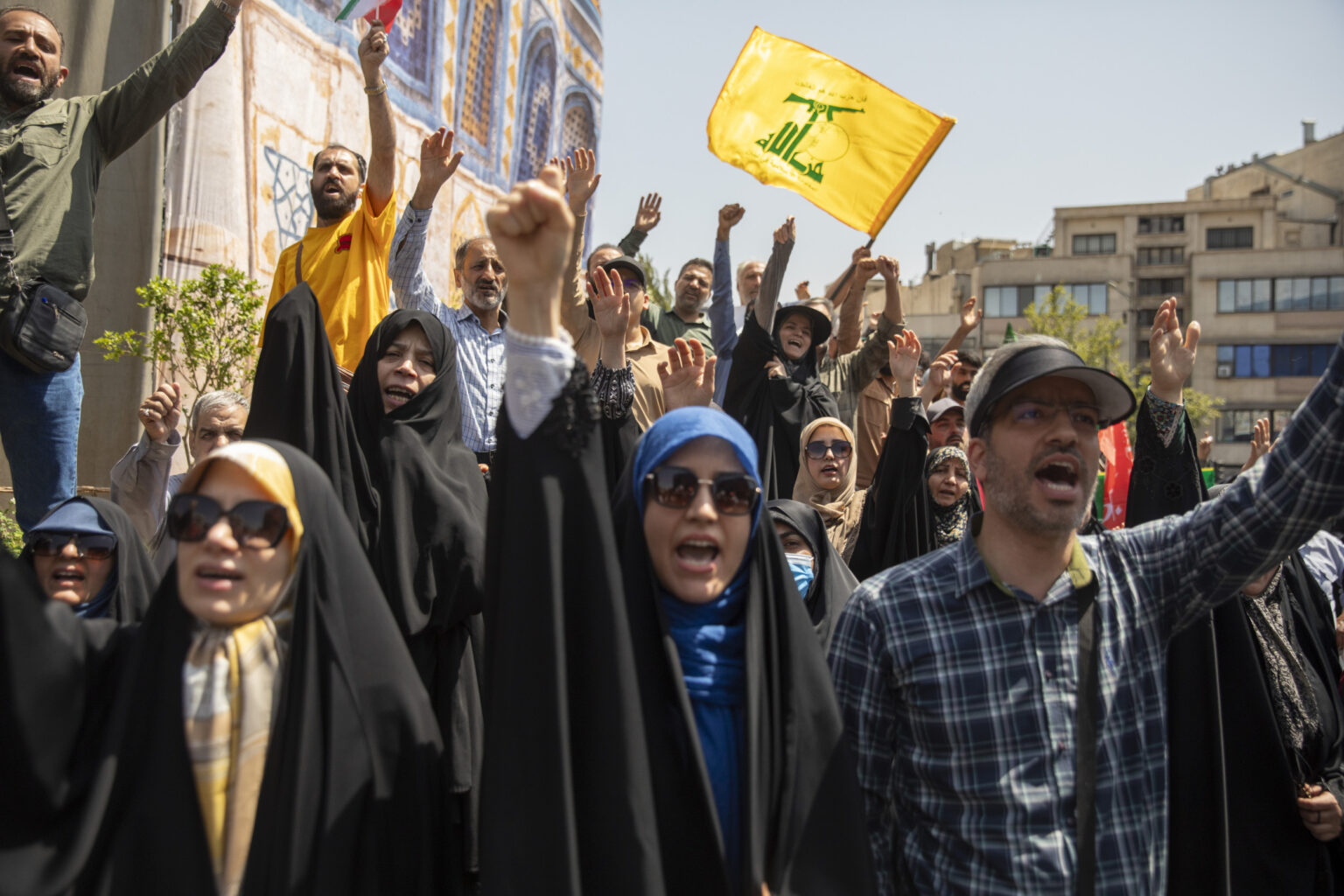A spokesperson for Hezbollah told Newsweek that the Iran-aligned militant group did not have immediate plans to retaliate against Israel and the United States after President Donald Trump ordered direct U.S. strikes against Iranian nuclear facilities.
“Iran is a strong country capable of defending itself, logic dictates that it can confront America and Israel,” a Hezbollah spokesperson said in a message to Newsweek late Saturday. “Hezbollah remains committed to all matters agreed upon since the ceasefire.”
Hezbollah signed a ceasefire with Israel last November, just over a year after the Palestinian Hamas movement launched a surprise attack against Israel, sparking a regional conflict that drew in the Iran-led Axis of Resistance coalition.
Israel and Hezbollah have continued to accuse one another of violating the truce, with the Israel Defense Forces (IDF) carrying out strikes in recent days against the group’s leadership, special forces and military infrastructure in Lebanon.
“Despite the attacks carried out by the Israeli enemy,” the Hezbollah spokesperson added, “the party has remained committed to the agreement.”
Hezbollah had previously indicated to Newsweek that the group would not intervene directly in support of Iran after Israel launched a sweeping series of strikes against Tehran last week, setting off daily exchanges of fire between the longtime foes.
Yet the Hezbollah spokesperson emphasized that Hezbollah Secretary-General Naim Qassem, who assumed the helm after Israel killed longtime leader Hassan Nasrallah last September, has “supported” Iran through his statements, and that future actions may affect the group’s calculus.
“Therefore, the issue remains subject to developments,” the Hezbollah spokesperson said. “However, Iran certainly has its own military capabilities.”
Trump first announced via Truth Social late Saturday, early Sunday local time in Iran, that the U.S. had completed a “very successful attack on the three Nuclear sites in Iran, including Fordow, Natanz, and Esfahan.”
The strikes came after more than a week of speculation of forthcoming U.S. military intervention, fueled by aircraft movements, the evacuation of nonessential staff and U.S. citizens in the region as well as Trump’s own threats to the Islamic Republic and its leadership, including Supreme Leader Ayatollah Ali Khamenei.
Addressing the nation from the East Room late Saturday, Trump indicated that he was not immediately planning to pursue further military action against Iran but threatened to do so “if peace does not come quickly.”
Iran has always denied seeking a nuclear weapon. Tehran and Washington had engaged in five rounds of talks toward securing a new agreement through which Iran’s nuclear program would be subject to restriction in exchange for sanctions relief.
A sixth round had been scheduled for last Sunday, but was canceled after Israel launched its unprecedented series of attacks against Iran, killing senior commanders and nuclear scientists as well as targeting military sites and nuclear facilities. Shortly after the campaign began, Israeli officials alleged that Iran had obtained enough nuclear material to produce 15 nuclear bombs.
Iran has responded to Israeli attacks by launching hundreds of missiles and drones against Israel over the past week. Iranian officials had warned that U.S. bases in the region could be subject to retaliatory action as well if the U.S. became directly involved in the conflict.
Other Axis of Resistance groups in the Middle East, including Iraq’s Kataib Hezbollah and Yemen’s Ansar Allah, also known as the Houthi movement, have also warned of potential attacks against U.S. positions in the region in the event of a U.S. strike against Iran.
This is a breaking news story. Updates to follow.
Read the full article here

